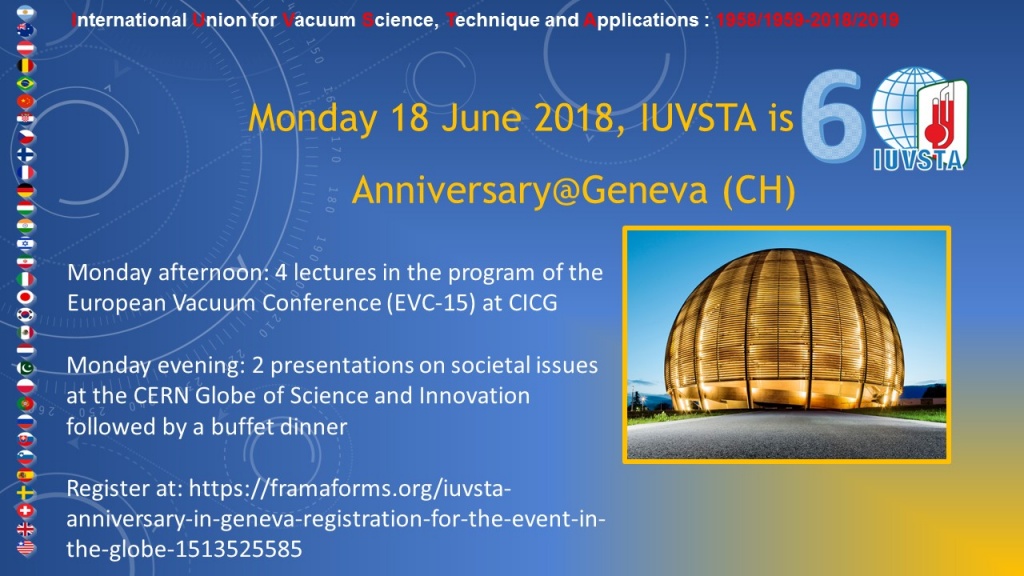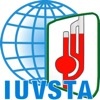International Union for Vacuum Science, Technique and Applications: 1958/1959-2018/2019
IUVSTA is 60!
Although the most spectacular applications of vacuum are related to high technology (coated lenses and plastics, high-power vacuum circuit interrupters, gas discharge light sources, semi-conductors, aerospace …), almost all branches of industry are now using vacuum technology on a daily basis: food industry, glass industry, building industry, cosmetics, battery, health industry, etc.… The economy of these developments created an unprecedented need for the production of vacuum on an industrial scale.
Vacuum technology advanced at an explosive rate by the turn of the 20th century (light bulbs and vacuum tubes for X-rays, radio, television and radar…) and was followed by a lot of innovations in the production and measurement of vacuum for research and industrial purposes. The First International Congress on Vacuum Technology held in Namur in June 1958 lead to the decision of creating a permanent international organization for vacuum science and technology (a) to organize in various countries once every three years an international congress on vacuum science and technology; (b) to promote the dissemination of information and the advancement of education in vacuum science and technology; (c) to affiliate with other national and international bodies to achieve these objectives. An international organisation was officially registered in Belgium on August 1959, it was the beginning of the International Union for Vacuum Science, Technique and Applications (IUVSTA).
In 60 years, IUVSTA created 9 scientific divisions, had 19 presidents, 35 member societies, 30,000 individual and corporate members affiliated through their national societies and 100,000 participants to our scientific and technical events per year. 15 IUVSTA Schools, 19 IUVSTA Technical Short Courses, 45 Welch scholars, and 80 IUVSTA workshops were organized as well as 91 scientific conferences including 32 ECOSS congresses, 20 IVC, 17 ICTF, 14 EVC, and 8 VASSCAA. IUVSTA-Elsevier Student Travel Awards were created to help students from less developed countries to attend IUVSTA conferences. 7 IUVSTA Prize for Science and 6 IUVSTA Prize for Technology have been awarded since 1998, and 2001 respectively. One of them got the Nobel Prize afterwards (A. Fert, F).
In the 21st century, young generations and decision-makers are also interested in social innovation and societal needs. Therefore it is the future challenge for the IUVSTA to demonstrate how vacuum-related sciences can foster sustainable societal developments.
Follow IUVSTA anniversary programs in its conferences: EVC-15, VASSCAA-9, IVC21 and others events of national vacuum societies!

